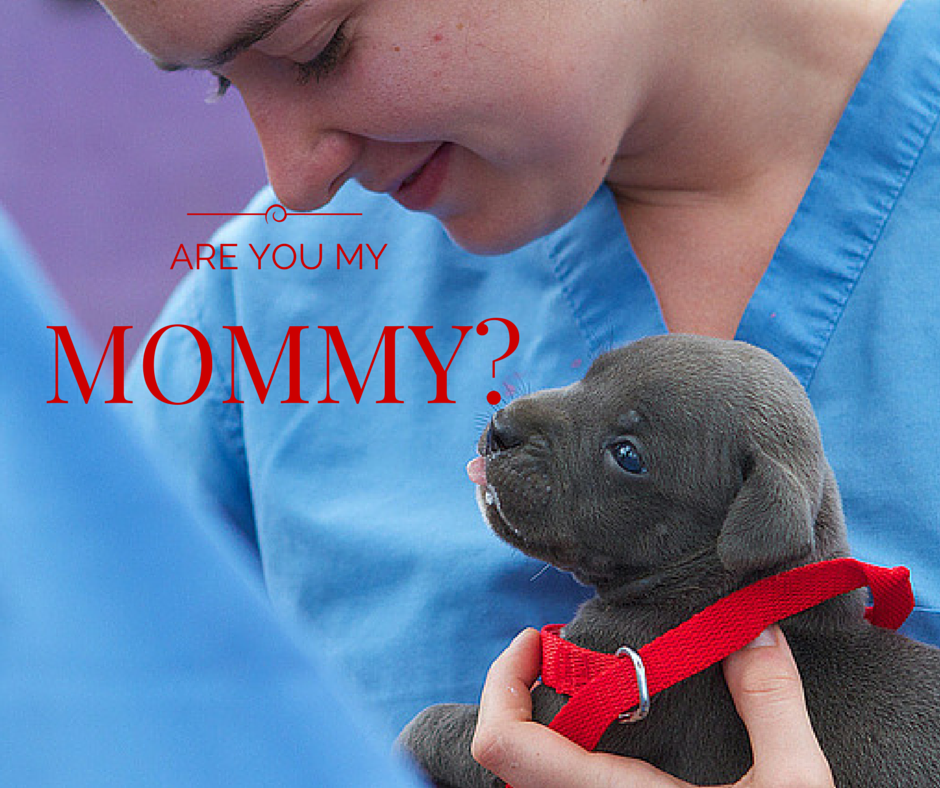Disclosure: This post is sponsored by Mars Veterinary Wisdom 3.0 Panel. Opinions are those of the author.
So, if I showed you a picture of a dog, you may be able to tell me a little about him or her.
You would often be able to make some generalizations about temperament-
Or adult size-

Or medical concerns, such as whether or not a dog can tolerate ivermectin.
But what about when it’s not entirely obvious, as is the case with my friend Karen’s adorable dog Ramone?
He’s been labelled everything from shar-pei to Bernese Mountain Dog to pit bull. Karen doesn’t care, because she evaluated him on an individual basis before deciding he was just perfect, which is what groups with extensive adoption experience like the ASPCA recommend anyway.
On the other hand, there are some good reasons to know the genetic history of a dog beyond the simple novelty of it all. Shelters who have used DNA testing such as the Wisdom panel have found potential adopters really like having a bit of extra information in front of them. For example, my friend adopted a pup about a year ago with a projected weight of 30 pounds who looked pretty similar to these guys:
As of his first birthday, he just topped 50 strapping pounds and still growing.
Or what if you have a dog who might be part Australian shepherd but you’re not sure and he has Demodex? It would be nice to know if he has the MDR1 mutation before taking your chances on a course of ivermectin treatment.
When Mars Veterinary Wisdom panels first came out a while back, people (myself included) had mixed reactions. What started out as a novelty has grown to have some real use. As our knowledge of the canine genome has evolved, so too has the role of DNA testing in dogs, everything from keeping dogs in homes when a misinformed landlord says, “but he LOOKS like a pit bull!” to increasing shelter adoption rates to helping HOAs bust the person who isn’t picking up after their dog’s business in the common area.
The latest version, Wisdom Panel 3.0, has the added benefit of screening for the MDR1 mutation, a test licensed for home use for the first time to Mars Veterinary by Washington State University. The MDR1 mutation is known to affect particular breeds and results in some very specific drug sensitivities.
Over the next six months, the Wisdom Panel Swab-a-thon Tour will be partnering with communities and shelters to swab the DNA of a number of their dogs, with the reports showcased to help match the pets to compatible homes. (I am really excited about the way this is helping shelter pets!) They will also be offering the product to consumers at the events.
The regular test runs $84.99, but the Swab-a-thons will offer discounts to pet owners during the events. On April 10, 11, & 12th Wisdom Panel will be hosting the first Swab-a-thon at the America’s Family Pet Expo in Costa Mesa, California. Visitors to the Wisdom Panel booth can take home a discounted kit for $49.99. 3 weeks later, you get a report and the results of the MDR1 test for you to discuss with your vet.
For more information about the Wisdom Panel or to see if there’s a Swab-a-thon coming to your area, you can check them out at: Wisdom Panel, Facebook , Twitter, Pinterest, and on Instagram.
Happy sleuthing! Isn’t science neat?












I still wonder, three years after his passing from probable liver cancer, if the poodle I got from a mill rescue was actually a labradoodle and if the liver disease was genetic. Vet said dog looked to be pure poodle, but the dog’s behavior in the six years he lived here, seemed a bit labradorian. His skull was more boxy than a poodle, his paws HUGE. Whatever, he was 65 lbs. of lovable shy, still missed every day wonderful doggy.
Aw, he sounds adorable. I bet you miss that big head. 😀
He was adorable and I miss him more than you could possibly know….
I wonder, though, how accurate these tests are. I’ve heard of several people sending in samples from known purebred dogs and getting back results that don’t contain that breed at all…
I think they can be useful but I hope we move towards better, more accurate tests.
I think each go round they get a little better. Breed is so variable. The MDR1 gene is clearly a lot easier to narrow down. Like anything, it’s a tool that people can use to guide decisions.
I love that picture of Karen’s dog Ramone! I am huge fan of not caring about the breed, but for the instance of health concerns and forewarning signs of issues this could be a huge asset. Science is neat indeed 🙂